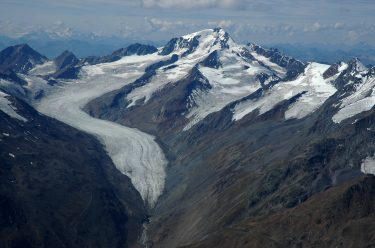
Mountain glaciers have long been a poster child of climate change. The global retreat of glaciers in the last century provides some of the most iconic imagery for communicating the reality of human-driven climate change.
But the scientific basis for their retreat has been less clear. Glaciers respond slowly to any climate changes; they are susceptible to yearly variations in mountain weather and some of the largest are still catching up post-Little Ice Age. Scientists can connect climate change to the overall retreat of glaciers worldwide, but linking an individual glacier’s retreat to climate change has remained a subject of debate.
Now, a study from the University of Washington that analyzes 37 mountain glaciers, finds that for most of them, the observed retreat is more than 99 percent likely due to climate change. In the climate report’s wording, it is “virtually certain” that the retreat of these mountain glaciers is due to climate change over the past century.
The College of the Environment’s Gerard Roe, a professor at the School of Earth and Space Sciences and corresponding author of the Dec. 12 study in Nature Geoscience, said, “Because of their decades-long response times, we found that glaciers are actually among the purest signals of climate change.”
Read more at UW Today »
